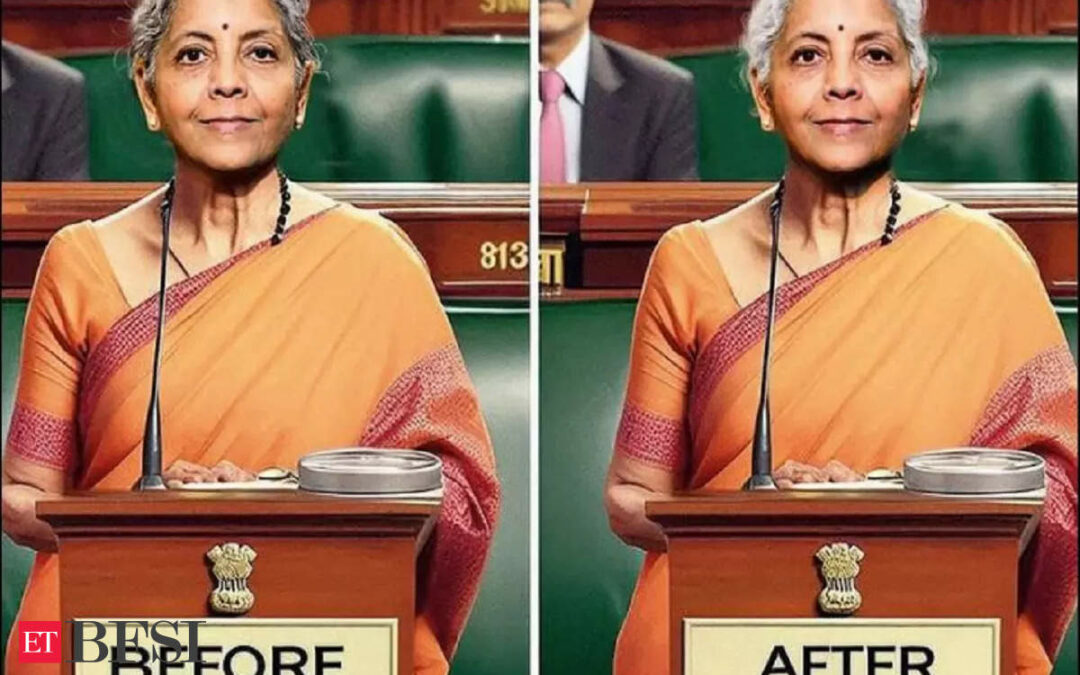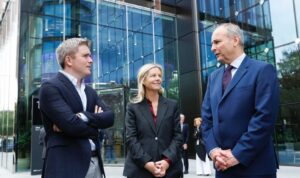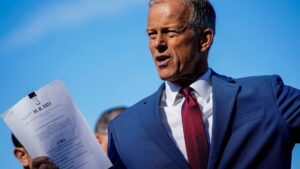Why rock the boat? Nirmala Sitharaman faces this question in preparing the budget to be presented next Tuesday. When an economy has achieved remarkable GDP growth of 8.2%, becoming by far the fastest-growing major economy, is any change of course required? Why not continue on the same path, with just a tweak here or there?
Some analysts think that major changes should, logically, be ushered in after a general election. The presumption is that the last two years of any election term are typically play-safe years, avoiding radical changes that will bring immediate losers before gradually creating more winners. In this model, radical change is better done after an election, with a full five years to go before facing voters again.
Narendra Modi has, indeed, spoken of his resolve to make major changes that will help India become a high-income country by 2047. But he has avoided specifics. One reason could be his reluctance to reveal policy changes that are better announced in the budget speech. Equally, the reason could be that GoI has no major changes in mind right now.The fact is that continuity rather than radical change is the BJP mood right now. The party’s manifesto was full of praises for great performances in various sectors in the last five years, without spelling out what it thought were problem areas requiring urgent rectification. The general message of the manifesto was, ‘We’ve done a jolly good job in the last five years, much praised globally. We promise to continue with that jolly good job, so please vote for this ‘Modi ki Guarantee’.’
The party expected to win handsomely in the general election. Few partymen believed in the rhetoric of ‘more than 400 seats’, which aimed to inspire rather than forecast. But most expected a comfortable victory. The actual outcome was less than comfortable. The party suffered a debacle in Uttar Pradesh, the main reason why it slumped to just 240 seats, well short of an absolute majority. But far from treating this as a major setback, the party has celebrated with gusto its re-election for a third term running, saying it is a feat not achieved by any party since the days of Jawaharlal Nehru.This suggests that the budgetary approach will be ‘more of the same’. The BJP ship has weathered stormy global seas with aplomb in the last two years, drawing much global praise. The fall in seats in elections was not an all-India phenomenon – it was overwhelmingly regional, in Uttar Pradesh and Rajasthan. The solutions will also be regional, not national.
Nitish Kumar and N Chandrababu Naidu have demanded ‘special category’ status to solve their fiscal problems in Bihar and Andhra Pradesh. They have increased clout in the current NDA, but that is unlikely to suffice. ‘Special category’ states are hilly border states with special problems that neither Bihar nor Andhra Pradesh have.
Their problems are of their own making. Nitish Kumar has lost enormous revenues by mandating prohibition. Free electricity in Andhra Pradesh has been among the major causes of that state’s fiscal problems. The two states may get additional allocations, but not ‘special category’ status.
Many sectors want inclusion in the list eligible for PLI. Sitharaman must hold firm against such demands. The fewer PLI sectors, the more likely they are to succeed. PLI should not become a subsidy-for-all scheme.
The last fiscal year enjoyed a revenue boom, which has continued in the first quarter of the current fiscal year. In addition, RBI has declared a massive dividend of ₹2.21 lakh cr, an all-time record. The revenue boom means that fiscal deficit for last year may be 5.6% of GDP, against 5.8% estimated in the interim budget. This, plus the massive RBI dividend, will make it possible to cut fiscal deficit in 2024-25 to the targeted 5.1% even while maintaining the high capex of recent budgets.
Fiscal deficit of the states is 2.7% of GDP. Combined central and state deficit will be a humungous 7.7% of GDP, a level that would bust many developing countries. Prachi Mishra of IMF has calculated that India spends 40% of its revenues on interest payments on old debt, against an average of just 10% in emerging markets. This structurally constrains fresh capex. India has a long way to go on the fiscal path. But it’s moving at the right speed.
Despite much talk of rural distress, rural areas in general didn’t vote against BJP. PM-Kisan, announced five years ago, gave farmers ₹6,000 a year. This has not been adjusted for inflation and, so, could be pushed up to ₹8,000-9,000. Alternatively, it could be extended to landless labourers and tenants.
Income-tax exemption rate, too, has not been revised recently. It could be adjusted upward by no more than to compensate for inflation. This will mean a nominal cut, but not a real cut. In sum, expect a ‘more of the same’ budget. Sitharaman has no need to rock the boat.
















